1st Officer Ping Xi Liu
6TH NAVY FIGHTER DIVISION
PLANAF – Jiangong
0508R hours 25 MAY 2028CE
EAST CHINA SEA. SOUTHEAST OF TAIWAN.
I can’t say that I’m excited. In fact, I lied when I said that I was.
I’m scared shitless. I’m a fucking kid. A pilot, yet still a kid.
I’m 26, and I was supposed to be on a beach, relaxing, enjoying the time I earned with my family. Vacation is of utmost importance to me. I love to travel, to see the lands far and high.
And I have. And I hope to continue, if I make it through this.
Hell, I’m not the only one, but we aren’t allowed to be scared.
We stand here, dressing into our flight suits, laughing along with my division, the people I’ve come to know and enjoy the company of, awaiting our final briefing in this hell.

“Briefing room!” shouts the PA. “Five minutes! All hands!”
I look to Te, and to Hu. Our eyes widen.
“Looks like this shit is real.” says Te.
“Nah,” Hu sluffs it away, as usual. He’s relaxed, always calm, always happy. He’s the guy you want in a situation like this. He keeps you grounded, and as a perfect example, he says, “I think we’ll calm down and reach a truce. There’s no way we’ll get far beyond this. We get Taiwan, and they go away. Give and take. Simple. This is normal.”
Not at all.
A few pilots run towards the briefing room, the flight leaders. They are followed by high-rank officers, their white uniforms telling of the situation.
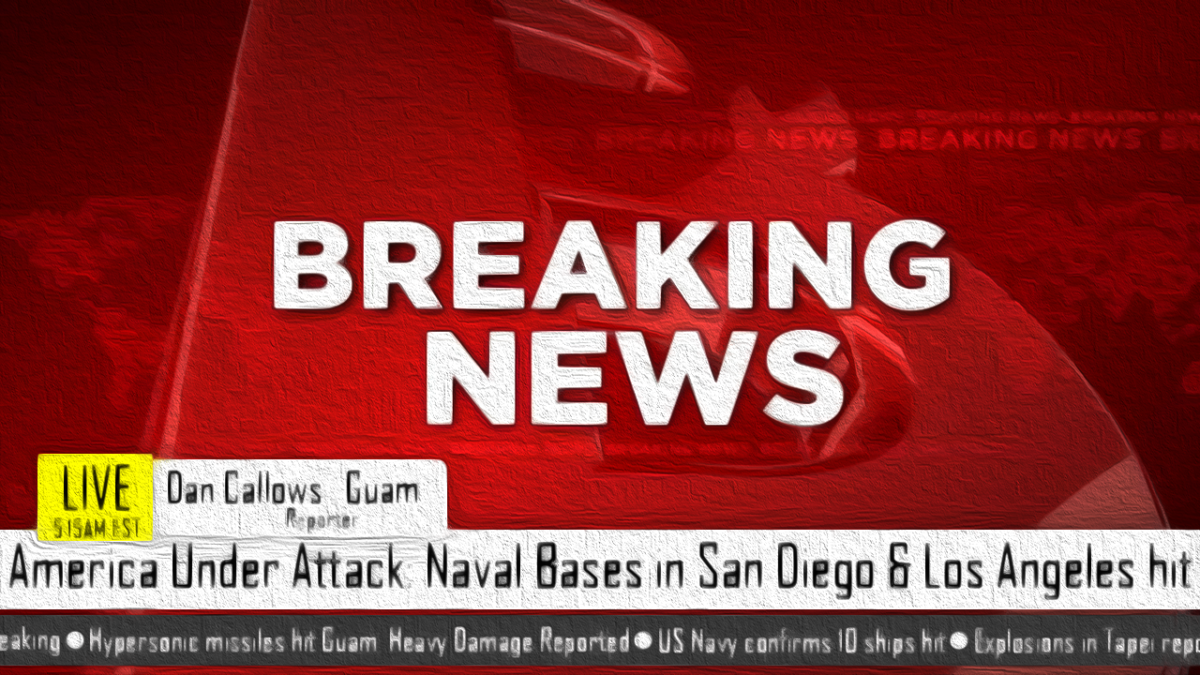
Behind us, we watch news rolls on the television, CCTV focused on live rolling updates for the past week. We stopped the naval battle. The Americans have lost ten ships. So far, at least according to the government, we haven’t lost any.
Yeah, right.
“There’s nothing ‘normal’ about this, Hu.” I say.
“You’re always so negative.” says Te, working on his vest straps.
“I just try to be realistic.” I press, checking my helmet. “They wouldn’t have us here for nothing. Maintenance armed the aircraft. We’re going out today, boys. So, I kind of think Te is right. This shit is real.”
“Then we’ll do what we have to do.” Hu’s tone dips. I hate to bring him down. “We have numbers. We’ve trained for this.”
Yeah, right.
Literally. He’s right. We’re the new generation of Chinese. We are the ones who will carry the legacy forward, and as we know through history, when two great powers disagree, one will always overstep. This time it isn’t us.
Maybe today, China will show that red lines do exist.
Taiwan is ours. Always has been. Always will be.
I consider myself liberally minded because I understand the Americans. It must be scary knowing that you no longer call the shots in the world, especially after doing it for forty years. I imagine they are spoiled. Drunk off their old days of dominance. It’s easy to be.
That arrogance is insulting, and don’t forget that this is me of all Chinese people saying this. Imagine for a moment, if we told them they could not have California, or Texas, or Florida. Imagine if we came to their backyard, in their Caribbean Sea, to tell them what they can and cannot do.
You would find that unbelievable.
You would be offended. Yeah, well so are we.

“Pilots!” we hear a sharp voice behind us. Instantly, our eyes are broken from the TV, our hands now in salute.
It’s Commander Weng. He’s our ship’s head.
We’re honored by his presence.
Importance and the hierarchy have that effect, I suppose.
“Pilots.” he says. “I know you are expecting a grand and pompous speech, but I will not provide that. Instead, I will be honest with you, in hopes that you appreciate this more.”
We nod, collectively agreeing that this is the better route.
He continues, motioning to the TV, “As you can see, our fates have come to a crossroad. This is no longer a tit-for-tat game. We are fighting, as we speak. We are fighting for our right to dictate our future. This morning, the world will see us reunite China. You may have your doubts, but hear it from me that it is happening. It is our fate, no matter who stands in front of us. Right now, we have every advantage, strategically, and tactically, but that window will close the moment we act. Americans will mark the beginning of this now, as we have just begun the destruction of their once mighty satellites. This will blind them, but not for long. They will overcome, but it will take time. This, young pilots, is the window through which we will be victorious. You will climb into your aircraft in one hour, and help us retake Taiwan.”
There are cheers. We smile, even though for me, it’s forced.
I guess having travelled to the United States, learning of its people, making friends with some and love with others, you have to imagine my fear of battling them.
They were great people.
They were great companions.
They showed me kindness and mercy.
And they were not my enemies, until three weeks ago when our nations started fighting. Americans believe in their uniqueness, an arrogant quality that is also unfortunately true. They are powerful, yet their people don’t like to use it. They cherish life. They cherish the value of family and happiness no more than the Chinese.
Even now, in their low position, they don’t want to fight.
This isn’t Iraq, or Panama, or Afghanistan. We can hurt them, badly, and they know this. All of their cherished ships, their aircraft carriers, their bases, their satellites, are vulnerable.
So they will resist. They will question fighting over an island that most Americans cannot name nor find on a map. That is, until we, the Chinese begin to hurt them. We all know what happened the last time this strategy was attempted.
We’ve all read about Pearl Harbor.
Sure, they can painfully stomach a few ships and back down, but what happens after we pummel Guam, or Kadena, or San Diego, or Los Angeles with hypersonic missiles? Will they cower then?
Are we ready? Is this the path we want to take?
Yes. Yes, it is. And in the briefing room, they overlay our tasks, and uniquely, they explain the grand scheme. Our ship, the Jiangong, and her strike group are positioned slightly southeast of Taiwan. We sailed here over the past week during the ceasefire, our leaders promising to spare their carrier damage so long as it did not commit to the Strait.
Normally, Americans do not give into demands.
But we are strong, and they listened.
China has the only carriers within 4,300 kilometers.
It’s us calling the shots now, and they cannot respond. There is no footage of their USS Carl Vinson steaming in the night, firing fighter jets into the sky on CNN. The commander is right. They have nothing but aircraft and a few destroyers, so here we go, set to take off at 0430. Thirty minutes into our flight, their satellites should be gone. Then, we strike and we strike hard. We encircle Taiwan, quickly and fluidly. China destroys enemy command and control, and together with PLAAF pressing east from the mainland, we take control of the air, and the sea, and eventually the land.
We dominate. We dictate the terms.
All before the Americans can muster a response.
To assist, we have on hand a crew of Russian expert advisers that stick out like sore thumbs. A half dozen white people amongst a flock of Han, but we admire their poise. They bring samples of their Super Flankers, Su-35 type aircraft, each one armed with new missiles we thought were R-37s, but learned are actually new R-39s. On paper, they are unmatched, even by our PL-21s.
Today, they’ll showcase them to us, both types.
Even with our old J-15s, most still awaiting newer AESA radars, we can carry at least the R-37. They are heavy, our aircraft barely able to hold them, so they handle like shit. We carry only two in combat load, gaining experience by training with them last year in Qinghai during drills. Suppose it’s a sales tactic, now that we’re “friends,” but I don’t care as long as I have two of them strapped to the underbelly pylons.
They should be much better than an American AMRAAM.
The Russians greet us. Our eyes lock onto them. They are quiet, but Commander Weng presses that they will be the lead, speaking almost perfect Mandarin, their Sukhois painted dark grey like ours. We will provide support to them, as they are the primary drivers of the long-range strikes to meet and destroy the American tankers.
It is their greatest aerial weakness. Of all the aircraft they have, they are worthless without fuel. With no bases, no carriers, no satellites, no communication, and no fuel, how can they win?
Our stomachs knot in realization. Weng finishes cleanly.
China does not seek world war. We do not seek a long and reckless conflict. We will not press too far, but we will reunite China.
“Holy shit.” says Hu.
“I told you.” I remind him. “This is happening, and this is now history.”
“We’re going to hit San Diego, and Los Angeles?” Te is flustered, his hands shaking at the news, “Isn’t that a bit much?”
“They have bases there.” I say. “They’d be the first ones to support their counterattack. We can’t let them have that easily.”
“Won’t they fire back?”
I have no response. Here, I suppose he can tell the answer by the look on my face. My fear is that this will grow faster and far worse than planned. I hope I am wrong.
Soon, the alarms sound. The war has started.
I imagine my old friends in America waking up, their phones buzzing, their TVs running emergency broadcasts, their faces in shock now that they realize that they are being attacked.
I still love you guys. Please, don’t take this personally.
I’m only doing what I have to do. I am Chinese.
This is my fate, and my legacy.
The excitement overwhelms us. We make our final preparations, spilling onto the deck like birds discovering bread crumbs. I pass my maintenance team. I bow to them, and them to me. They are the engine that keeps us running.
I look up at my plane. My Shenyang J-15, it’s twin tails showing the number five in bolded red.
Star Five. That’s me.
In the dark, you can’t see its silver paint, nor the red stars proudly painted on each vertical stabilizer. The carrier’s lights are dark. We are at war.
I climb the ladder. I’m in the cockpit. I strap in.
Pre-flight checks are all good. The engines hum to life. I watch my friends take off into the dark early morning sky. Somewhere in the skies above us, our missiles streak upwards, removing the American eyes one by one.
6th Navy Fighter Division. Together, we have 27 planes.
All Shenyang. Chinese Flankers. All armed to the teeth.
Nineteen supporters carry four R-77 missiles. Two R-73s.
Eight attackers carry two R-39 missiles. Two R-73s.
With two drop tanks, I barely clear the deck, holding just above stall speed as I break free of the ski jump. My plane shudders, but I go easy on the stick.
No sudden movements. Go smooth. Keep afterburners lit.
I climb slowly, filing into my group as they circle around.
We have three for this flight.
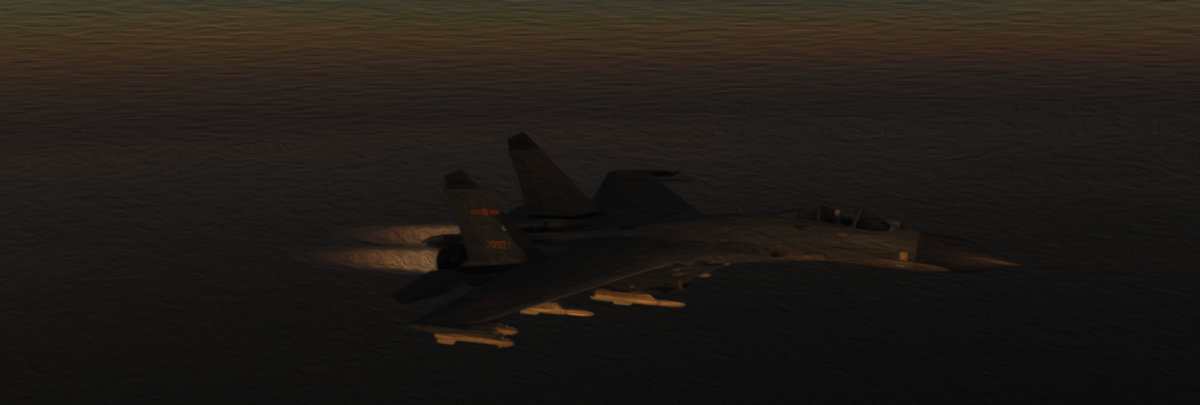
Group A, Star, my group of three, files in behind three Russians to take the forward position. Hu and I were lucky enough to be here. We are the tip of the spear, and I’m told that because we’re considered the best of the division, I get the honor to shadow the experts first hand.
Yes. I’m honored, scared, and angry all together.
Group B, Dragon, hosts Te, four other Chinese planes, and two Russian experts. They take mid-position of the advance, while Group C, Lion, all six of them Chinese, take the right.
Once we approach, we expect the Americans to flee. During their cover, we’ll surround them. Group A pressing behind them, with Group B and C flanking. As Commander Weng said, our ELINT satellites spelled the threat as mostly F-15 and F-16 type jets. Their F-22s, the vaunted Raptors, and the F-35s weren’t moved yet in an attempt to keep hostilities at a negotiable level.
Those are my biggest worry. Lethal, and fast.
F-15 and F-16 jets? I’m not scared of them.
Without tankers, which is our job to destroy, we’re told that we have little chance of the Raptors being in play. Either way, if they manage to make it up, the R-39s should be able to track them. Also, we have Chengdu J-20s from the mainland to help us cut them off. Either way, the majority of them should be destroyed on base at Kadena by our DF-21s. Yes, Kadena, we’re told, will be “levelled”.
As for Taiwan?
Their indigenous fighters should be a cake walk.
All show. No go. No fight.
But, I remind myself that only time will tell. So we press onward, due north into the sky. My mind grows silent. Everything escapes me, and at this point, only the grumbling roar of the engines and tremors of turbulence keep panic at bay.
I consider myself a strong-willed man.
After all, I was selected to be a pilot. A navy pilot.
There must be something special here, but at times I have my doubts. Here we are, launching an attack against a country that has rarely had a foe audacious enough to do so. There is a reason for this. Hell, there are countless reasons.
And we expect them to run?
“Five minutes.” says our controller. “Turn in to 0-3-5.”
“Confirm.” I say.
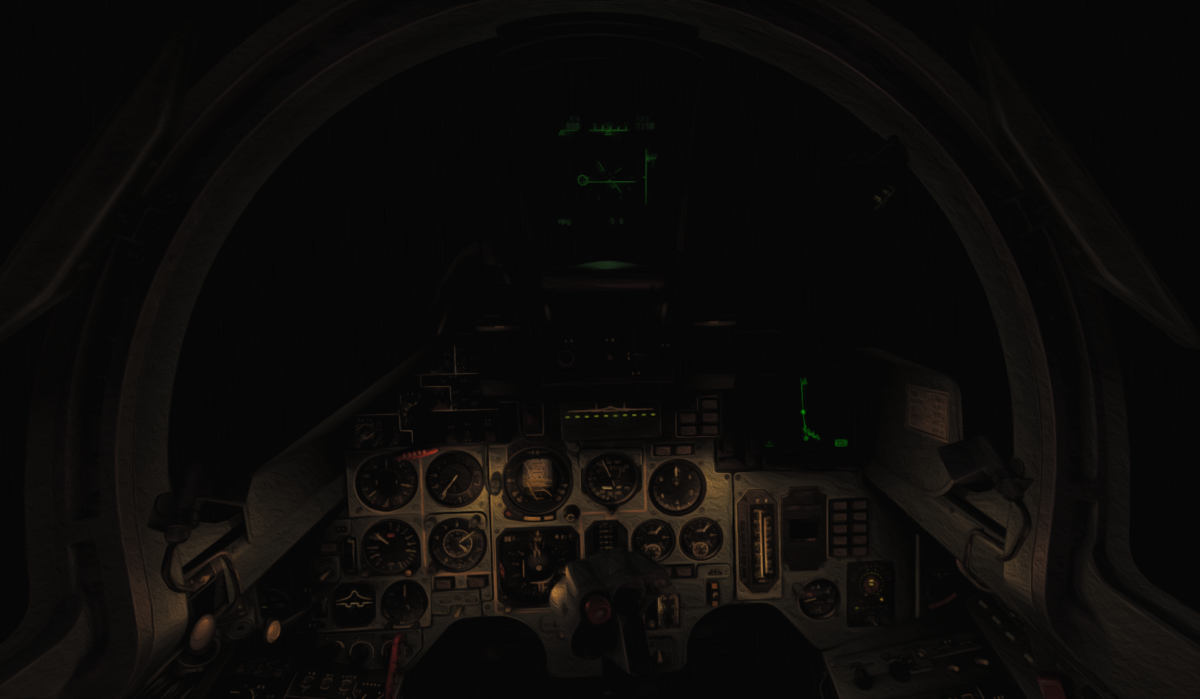
It’s quiet. Way too quiet. Off all the war outside, I see nothing. We press with our radars off, our only version of “stealth,” feeding from ground control intercept that the Americans are already attempting to ferry aircraft out of Kadena. They estimate “at least a dozen” made it into the air. Five minutes later, they report even more.
They can’t confirm a number, but they estimate at least another “dozen or so” are airborne. This information comes from spotters we have in place there. Soon, we hear that the spotter claims to have seen sixteen fighter aircraft launch. They can’t seem to pick them up on radar, and they’re expected to be armed, and “potent” per say.
Then, we hear a boom in the radio. Coms go down.
Did the Americans take out the station? Fucking shit.
I radio to Hu, “But I thought Kadena was out of play?”
“I guess not.”
They got an early warning, probably a pre-emptive one the moment they saw our missiles launch. Or, perhaps it was their newly minted Patriot batteries. They rushed to develop them following the INF dissolution, and my best guess is that they work.
Our flight lead comes through, the Russian, dubbed ‘Yellow Four’ saying, “Almost to strike point. Undetected. Start count at waypoint.”
“Affirm.” I say, looking to the others behind and beside me as we fly through the clouds. “Break away in ten.”
My guys are as ready as me. It’s now or never.
“Affirm.”
“Got it.”
“Ready.”
“Okay, champ.” says Somanksy to me. “Go.”
I take a deep breath. The mask makes me claustrophobic. I hate it.
The second Russian expert confirms, “Three contacts on radar. Switching off. Time to climb, guys.”
Nodding in approval, I start the countdown. From my shaking voice, there is a muddled, “Ten.”
“Nine.”
“Eight.”
I peer down at my heads-down-display, its little recessed screen starkly black, my eyes torn at the fact that it’s mostly blank. Aside from the small figurine representing my aircraft, it only shows a few rectangles, the navigation waypoints programmed in per our mission. There are no hostiles.
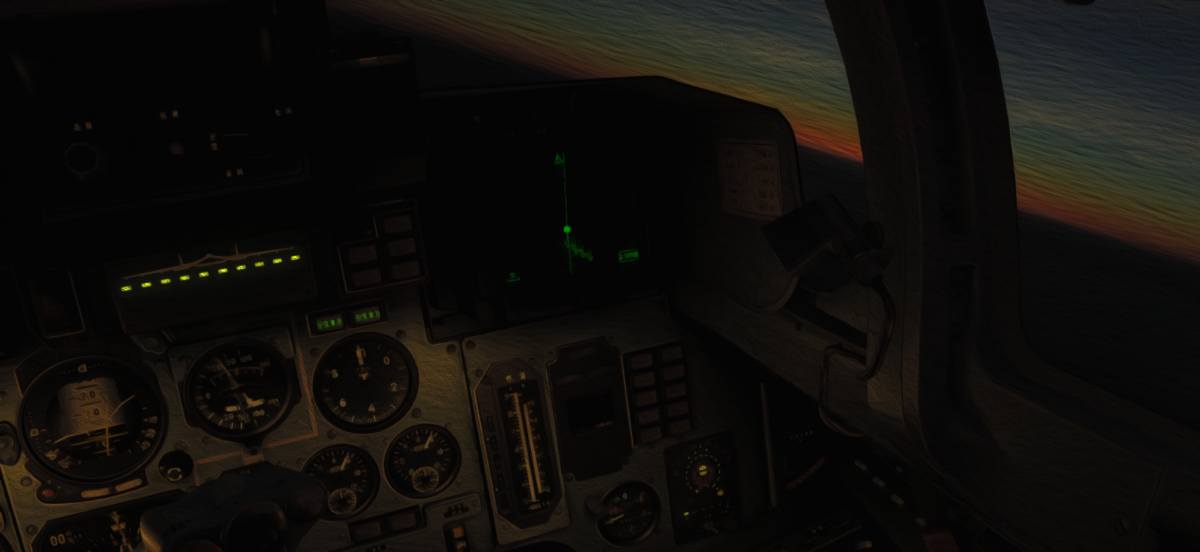
No other planes shown, even if my mind knows they are there, lurking about, waiting to silently kill me. I want the radar on so bad. Fighting my instincts, I keep it switched off. We must trust ground control. They wouldn’t lead us astray. Not now. Not in this important time.
“Seven.”
“Six.”
Turbulence. My plane jumps, startling me mid-count. Anxious, I look out the canopy, hunting for missiles, laser, or any other fantasy weapon my new enemies would employ.
“Five.”
I’m supposed to be strong. But I’m scared.
I’m fucking scared.
My head spins around, my eyes searching every angle I can cover, but I see nothing. Just clouds and lightning.
“Three.”
Someone interjects, “—You skipped ‘four’.”
Then, somehow through all this, we laugh together.
It’s refreshing.
Is this the last time we’ll see each other? Share a laugh? Fly in formation, our planes proudly tearing through the air like knives through paper?
Our carrier, Liangong. Is it still there?
“Screw it.” I say. “It’s time, guys!”
“Split on my mark.” I grip the stick, ready to break away as soon as I say. “And, go!”
Yet, things go sour.
Our hopes for easy victory dashed.
Things happen fast at this point. My eyes look down at the radar warning receiver, its little Flanker caricature surrounded by little circular lights telling me the direction of the threat. There are eight of them, and though only one is supposed to light at a time to show priority, my eyes chase the indicators as they switch like strobes.
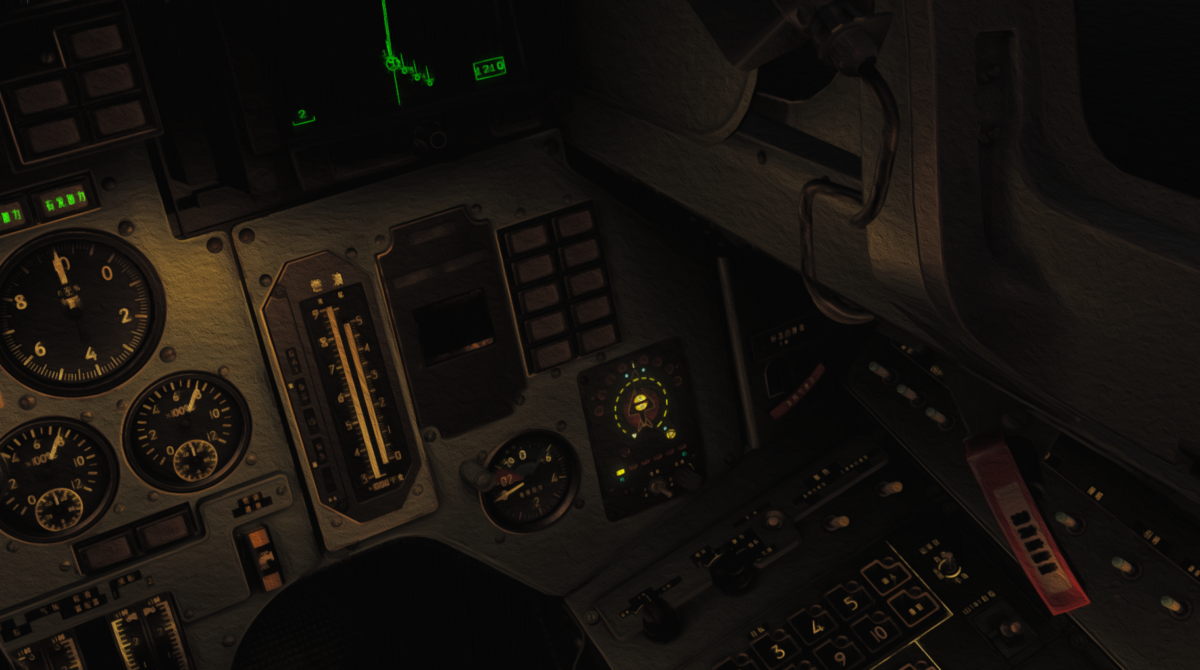
Reactively, I turn, banking hard right to defend.
“I’ve got tracking!” I say. “Tracking from 0-5-0! No, 0-3-0! No, wait—now the rear! I’m turned!”
“Evade!” shouts Hu. “I’m defensive!”
As soon as they came, the warnings disappear.
“Hold steady!” Somansky pleads, watching us cave like roaches. “Hold steady and split! We must deploy!”
He’s right. I pull out of my dive—too hard at first, feeling the plane shudder, the stall alarm dinging in protest. Too hard on the stick! I still have the R-37s!
Dammit, the plane hates them!
I see the water below. Nose up! Nose up, Ping!
And I do, eventually pointing high enough to dare flip my radar into action, BVR mode. I flip the toggle, eyeing the HUD’s lower right corner until I see “R37”.
That’s it. And I arm them.
The radar is spooled. It scans, and scans, and scans.
“No targets!” I shout. “I see zero fast-movers!”
But we’ve all reached that conclusion. The Russians are calm, off somewhere in the distance, perhaps 20km split from us now. Experts, and here we are panicked. It’s up to me to get the Chinese back in line. We have to turn in. It’s the only way to entrap the threats.
“Commit!” I say to Hu and Xiang. “Turn back in! Stay low to the deck.”
“Heading 0-4-2!” I hear Hu. “2500 meters! Nothing on radar!”
“No hostiles!” confirms Xiang. “Where are they?!”
“No!” I tell them. “Don’t scan too long. They’ll see you! I’ll cover up high.” I’m still scanning for targets. “Keep pushing before we turn back in!”
The Russians exchange dialogue. They’re using their far better AESAs to help them. Happily, they divulge some headings.
“We have them!” says Somansky. “Three targets 0-3-0 from our nose! 7800 meters! 130 kilometers! ”
“Tankers?” I ask, throttling up just below afterburner.
“Yes!” he replies. “Two tankers! One AWACs! Lot’s of signal from it!”
Another Russian, Yellow Three, says, “I’ve got—five contacts. F-15 type. I see them beaming. Uh, looks like we can keep them busy.”
“Fire the missiles!” says a Russian. “Fire them now!”
“Fire one! Fire Two!” says Somansky.
I hear at least a dozen more calls, “Fire one!”
“Fire one—”
“—Two away”
“One and two fired!”
Yet, I see nothing. “No targets!”
RIIIIIIIIIIIIINNNNNNNGGGGGG.
The tracking alarm! The little caricature lights up, the circle bulbs at 30 and 50 shining to my forward right. Two-o-clock! Now Three-o-clock! It’s pulsing. Gone. Silent, and then back again.
I maneuver to face it. Can I fire to turn him defensive?
Finally, I pick up a target, the three little rectangles in the HUD highlighted. I lock him up. It’s big. A bomber?
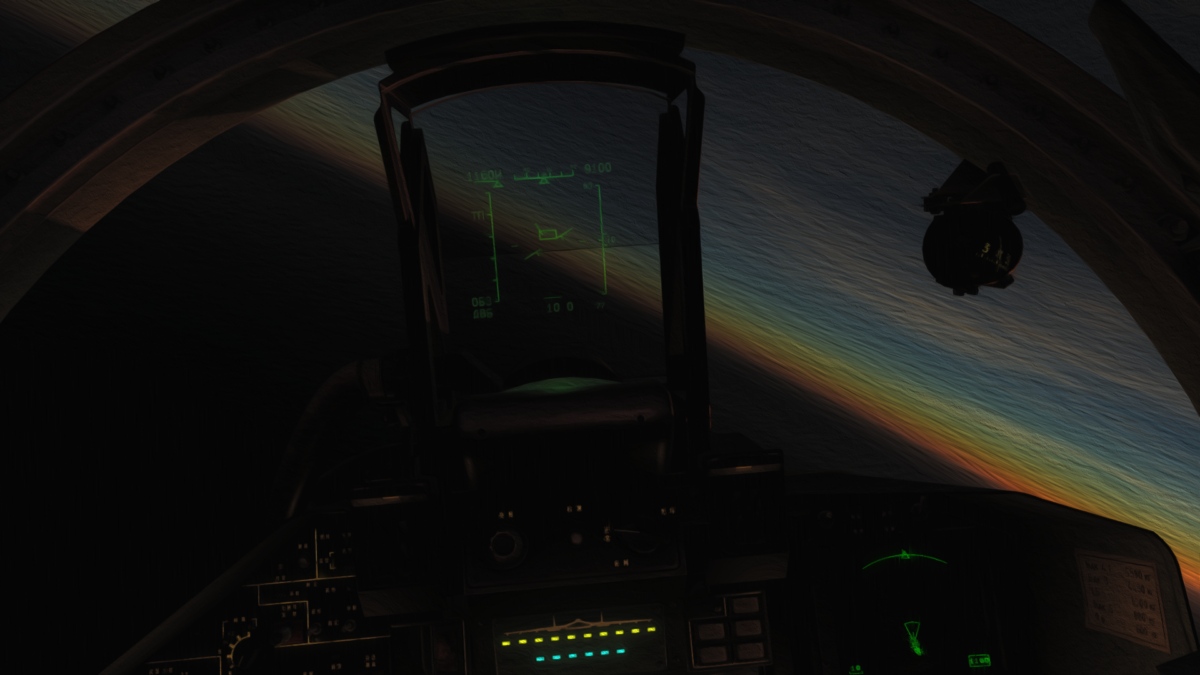
Why the hell would they fly a bomber though a zone this hot? What the hell are they thinking? It has to be a tanker, but how many tankers do they have?
Water dots my canopy. Turbulence shakes the plane.
The thunderclouds are beautiful, the one thing about flying that keeps me sane. God, to be on the beach. My friends. All of them will hate me, and I love those people.
Gah! No time! I see the range markers in the HUD. I await the targeting arrow to cross the first one, the highest of the three to show me that I’m at least within the calculated max range of the missile. I want more, but I have to press. Press further towards an enemy who is tracking us with what appears to be little more than tankers and a small contingent of fighters. Either we’re lucky, or the first wave was extremely effective, or we’re screwed.
Press further? I can only do it if I dare.
Do I? Am I daring? Am I courageous?
I pull the toggle and press the trigger.
I feel a jolt, the plane rocks, thrown off balance by the dropping of an R-37 from its pylon. Little more than a second later, its rocket engine ignites, shooting forward ahead of a plume that streaks upward and to the right towards my target.
Silence hits. I breathe, just for a second, watching the sky as the horizon glows a pretty blue. Sunrise. So beautiful.
There’s still panic on the radio. American jammers scramble our radar, filling the screens with static, or in my case a ghostly flicker as I switch it off and on. We too have employed electronic weaponry, though I only hope it’s working.
Here, I realize the depth of my doom. In all of my training, it was never this obscene. Staying calm is my best option, but I can’t. We outnumber them. This should be easy. We should be able to paint and unload, firing with glee to hammer them away, but here we are, aloof. It’s happening so fast, my hands racing between the stick, and the controls, flipping toggles in an attempt to get the radar locked onto something. Something.
I know I have to shoot back.
Just. Shoot. Back.
I’m dizzy, not only from g forces, but from my head spinning back and forth, my eyes hunting through the still darkened skies for contrails, rocket glows, or anything to help me spell out this battle unfolding.
Holy hell this is hard. The radios might as well be switched off, our frequency discipline crumbling by the second, the Russians practically pleading with us to stay calm and press.

We’re closing within 90 kilometers, they assure us. We have time to press and deploy before going defensive, their AMRAAM missiles still largely ineffective at such a high range.
“Let them waste their shots!” says a Russian. “None of these missiles will hit you! Stay in line! Press! Press!”
That’s right. I’m Group A flight lead. They gave me R-37 missiles, and I must not let them go unfired. I level out my Flanker, turning my nose back in, radar on, scanning intermittently through the jamming haze.
“Star” I scream through the radio at Group A, enough to assert my command over the other voice, “keep pressing! Turn to 0-3-5, push to 7,000 meters for the shot!”
But we can’t find a damn thing. Not with our radars.
Maybe five of us pick up F-15 or F-16 signatures. Everyone fires, some too early, some too late.
I don’t even really know what happens at this point, but I know it’s bad. I feel it. I feel the intensity, the confusion, the confoundment of my wingmen as we struggle amongst ourselves to figure out which one of the three rectangle clusters in the HUD are real.
At this point, we know they can’t all be tankers.
Some of us get radar warning. Live tracking from a missile.
I hear it again.
RIIIIIIIIIIIIINNNNNNNGGGGGG.
Yellow lights form a circle around the caricature, winding like a backwards clock to show strength of the hostile tracking. The lights start with one or two at first, all before instantly maxing out the dial.
Honestly, I hate the constant beeping.
In training, we always joked about its annoyance. It beeps for everything, dinging and donging at birds, chiming if one farts too loudly or thinks ill about the party.
But this is no joke. The beeping stops, replaced by a long and steady tone. It’s the warning. There are missiles heading our way, from somewhere ahead, though we have no idea where.
I watch the indicators, the yellow lights in the circle, dancing back and forth, the signal changing direction at random, then disappearing in seconds-long pauses. I breathe through each pause, watching as we make our aircraft zig-zag, constantly adjusting our positions with our noses flailing back to the south.
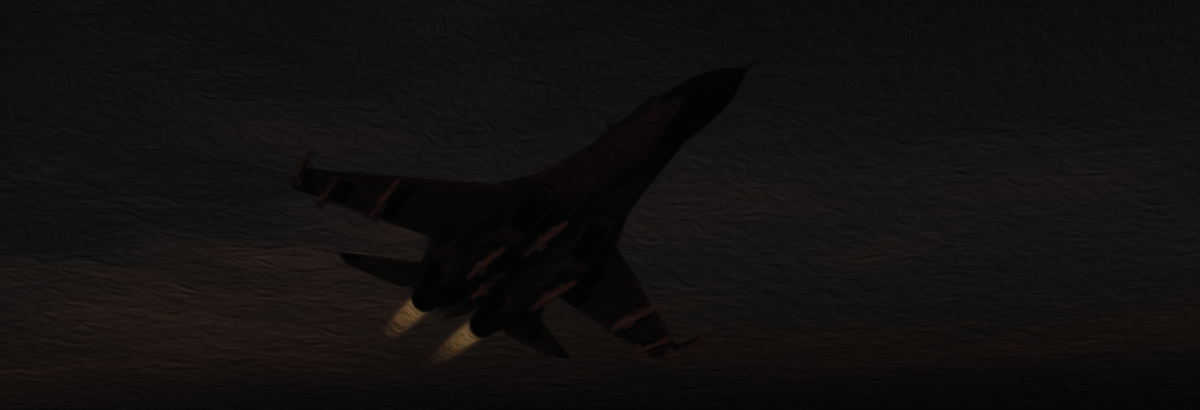
We’re running. Does that make us cowards?
Better yet, how do we press when we have no idea what and where our threats are? I ease off the stick, crossing 3500 meters. I need my vision back. I need to check the instruments. On my radar, I see squiggly lines. They’re jamming us.
Of course they are.
This pause between radar warnings is longer than the others. Did we evade?
“No more warnings!” I say. “I’m clear! Star, turn back in!”
But it’s just me and Hu. I check everywhere outside of the canopy, but he’s the only J-15 in sight. Damn. I can’t find the other.
Perhaps he’s gone, run away towards home.
I hear the Russians.
“Flight leaders!” says Somansky. “Take control!”
He’s right. This is my job. To lead. To keep us together.
“Copy!” I say with authority, in the voice my fellow pilots need, cycling my radar again, switching to random track mode, looking to Hu, “Wing Commander, all flanks, we must fire! Strikers, switch mode to RTM! Star and Lion, report!”
Chinese pilots report back,
“I see different targets! Never the same number!”
Hu’s voice, “Jammers! Maybe decoys?”
“I can’t lock!”
“I see one! I’m firing! Missile away!
Te’s voice, “I’ve got two targets! Locking now!”
“Where’s ground control?”
“Gone for now.” I say, locking the radar on the first set of targets I see before looking to Hu, flying beside me, “Star, we’re going to push north. Split in 5 kilometers and then we go to 0-6-8 and fire.
“Copy!” Hu sounds shaky, but he’s holding well.
“Cover the press!” Somansky agrees. “Our radars are having trouble too, but they’re close! Targets close! High speed!”
Breathing under fire is the hardest thing we’ve done, but I remember. I remember the training. The outline of what to expect, where our instruments would lead us to confusion, our communications rendered unreliable, spotty, and effectively useless. We are fighting the most technologically advanced force on Earth, but we cannot be scared away. The point in all this, was that we are combat pilots. We should be hardened to this.
I believe that we all have our humble beginnings.
Here is mine. This is the point where I cannot be scared.
The Russians speak of the mission, reminding me of the strategy. Covering the rear flank, Hu and I are the ones chosen to confound the Americans. Our missiles, though potent and powerful, aren’t necessarily designed to strike and kill. I’d like them to, but I have to be realistic.
In seconds, I logic through the problem:
Ground control didn’t even know how many targets made it from Kadena. We heard of “a dozen or so,” and then “sixteen” combat aircraft. No specifics on type. The Russians only spotted tankers, large aircraft that are quite easy to pick up. All groups have conflicting numbers of targets.
This isn’t the precision strike we dreamed of. As the sun rises, and the sky dawns a burgenous blue hue, I look to the horizon and expect anything.
Somewhere, not very far at these speeds, are my enemies.
Americans always find a way, even when taken by surprise.
So, here in our position, the strikers and our R-37 missiles are designed to frighten them as much as they have already frightened us. China says this is our airspace.
If we can’t hit them, let’s make them run.
Finally, my radar picks up.
A flash. Wait. What is that? OH!
I see fire in the distance! One of ours! He’s hit!
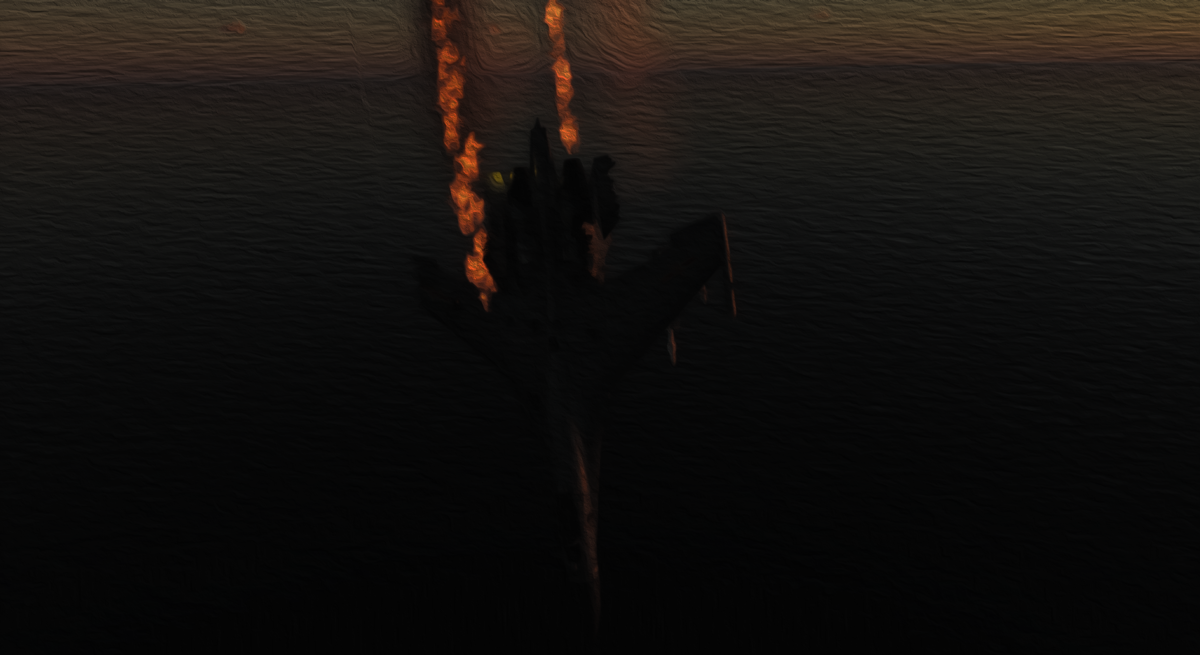
“I’m going down!” I hear screams. “Going down! Help me!”
Another, “Missile! Missile! Ahhhh—”
RIIIIIIIIIIIIINNNNNNNGGGGGG.
My radar warning dial is maxed, the yellow lights, all of them, filled and blinking ominously, the little Flanker caricature surrounded with doom. I see Hu, turning away to evade, firing two missiles before the roll.
I must follow suit, but still, this shot has to count.
I only have one R-37 left. I can’t waste it.
So I roll, nosing towards the east, defensive initially, looking out the canopy at the infinite beyond. There are rocket contrails, plumes of smoke, some of them meeting each other in bursts. It dawns on me.
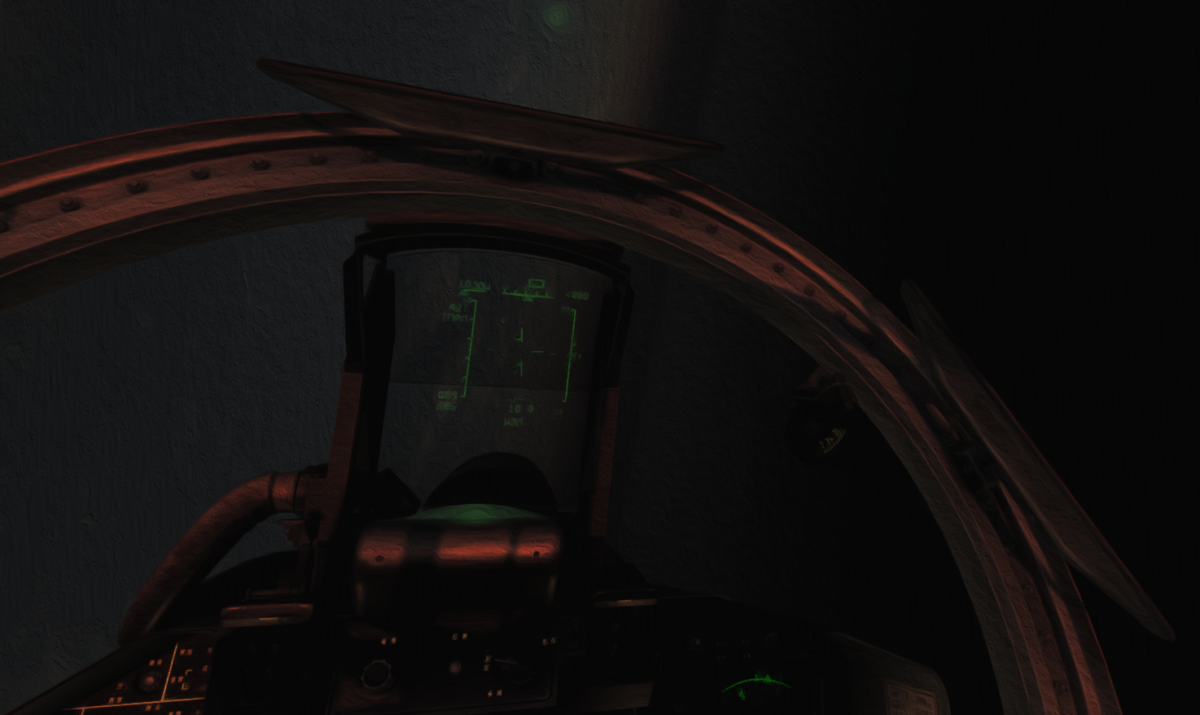
Oh god, this is it. This is our merge.
We’ve pressed so much that we’ve closed the distance, dumping our missiles on the targets we could pick up—tankers that turned away under fire, the Russians claiming two hits, though I have no idea where my first R-37 went.
Did it miss? Did it hit? Did I score a kill?
Did I at least accomplish something? Tell me I did. Tell me I made a difference before a merge with an unknown number of enemies. They’re out there, tracking us the entire time, yet they flew into close range without us knowing.
Not even the Russians.
I failed to check the optical targeting system. My mistake.
I drop chaff as I dive, reverse my turn to look up again, only to be scared away by another onslaught of radar warnings.
“I’m hit!” I hear another. “I’m—on fire! Ejecting!”
I’m numb. I know I’m going to die.
I just want to see an enemy. I want to see who is shooting at me. They can’t be ghosts.
“—Two of us are down!” I know him. He’s, shit, he’s Lion Group. “I can’t see! Oh—another missile! Ahh!”
“Aggggh!”
“Defend! Move, move—”
“Anyone tracking Lion?” I radio, grunting as I pull hard to nose back up. “Star to Lion, come in!”
The Russians claim that two are hit.
“Merge! Merge!” I hear one of them. “Two aircraft! Splitting! Two kilometers!”
Now, I have no choice but to fly hard. My plane shudders again, over-controlled. Stall warning, so I push the throttles to afterburners. I drop the fuel tanks as I fall straight down, spinning slightly in the recovery. The weight is gone, the plane turning into a weapon far more nimble than before.
Shenyangs have Chinese engines, weaker than Russian Saturn engines, yet they provide enough push to complete the tail kick. Flight control in override, I use thrust vectoring to right myself and pick up speed on the way towards the sea. The sky is blue now, its light increasing by the second, my eyes reassuring me that in this tight combat, I stand a chance to see my foe, to gauge my situation, to at least have a choice to not die in vain.
I hear reports from those Chinese still alive.
“Merged!” says someone. “I see him! Twin engine, two fins!”
Must be F-15. I need to find one.
Radar is still on. It never stopped scanning.
Now in auto target mode, I search. The range between sides is low. The R-37 waits. With its warhead, and its kinetic potential, anything within 10 kilometers is guaranteed. All I need is one F-15.
Just one of them. I can’t die useless.
I didn’t want to fight. None of us did.
I’m almost to the deck. Shit, the water is close. I level at 200 meters altitude, pulling up and aiming northeast. I see the afterburner plumes ahead zooming about, missiles firing back and forth, aircraft rolling and tumbling.
There are Chinese Flankers on fire. Some are breaking into pieces. I cry, but only for a moment. An anger wells up within me, deep in my stomach as I watch my people perish in this slaughter. I can’t do anything. I feel powerless. I was a leader, a young Wing Commander. I left my homeland, and my ship with my friends.
In front of me, they are all dying.
And what am I doing? I’m hiding below.
I’m pulling up, my eyes seeing through the bluing sky three little black dots in the distance, piercing through the clouds from high above. I only catch a glimpse as I maneuver.
My legs tingle. My gut is in knots.
It’s them. Finally, we meet.
I open my mouth to announce them,
“Nooooo!” is all that comes out.
RIIIIIIIIIIIIINNNNNNNGGGGGG.
A missile, tracking this close is certain death. I’m forced away again, dropping as much chaff as I can, turning perpendicular to where I last saw the threat. It was instinct. It was the way I remembered learning to fake a missile tracking radar, even an advanced AESA fielded by American aviators.
I think this is what saves me.
I think this is what didn’t save the others.
Hu flies by, banked hard left, his afterburners in full blow, firing an R-73 heatseeker at something he’s fixated on.
There is no time to radio. Again, I hear the radar warning.
RIIIIIIIIIIIIINNNNNNNGGGGGG.
Oh my god. I see it! A missile, dead to my left, streaking towards me, its rocket motor still lit. Speed is high. It crosses perhaps one kilometer in but a few seconds. I can’t turn towards it. That’s suicide! Out of options, I stay perpendicular, correcting my angle, frantically looking towards it as it tracks.
I groan in angst, hearing Hu’s voice, though I can’t help him.
The missile closes, maneuvering towards me, its rocket motor shutting off during terminal guidance. I should die now, but it misses me. I see its warhead explode behind the tails of my plane, somehow fooled by the cloud of shrapnel It dumped behind me, at just the right time.
I know I’m within kilometers of who fired. Those AMRAAM rocket motors cease to burn perhaps 5 to 10 kilometers after leaving the pylon. So, in anger, I turn back in.
Just for a moment, just for a fleeting second, I see the three rectangles in the HUD field. Seven kilometers range, head-on. I select the target. I’m locked.
And I send it, an R-37, a raw beast of an interceptor, streaming away from my Flanker as if it were launching to the moon. It crosses the sound barrier in seconds, then twice the speed of sound in a few more, then three times sound as it arcs upward.
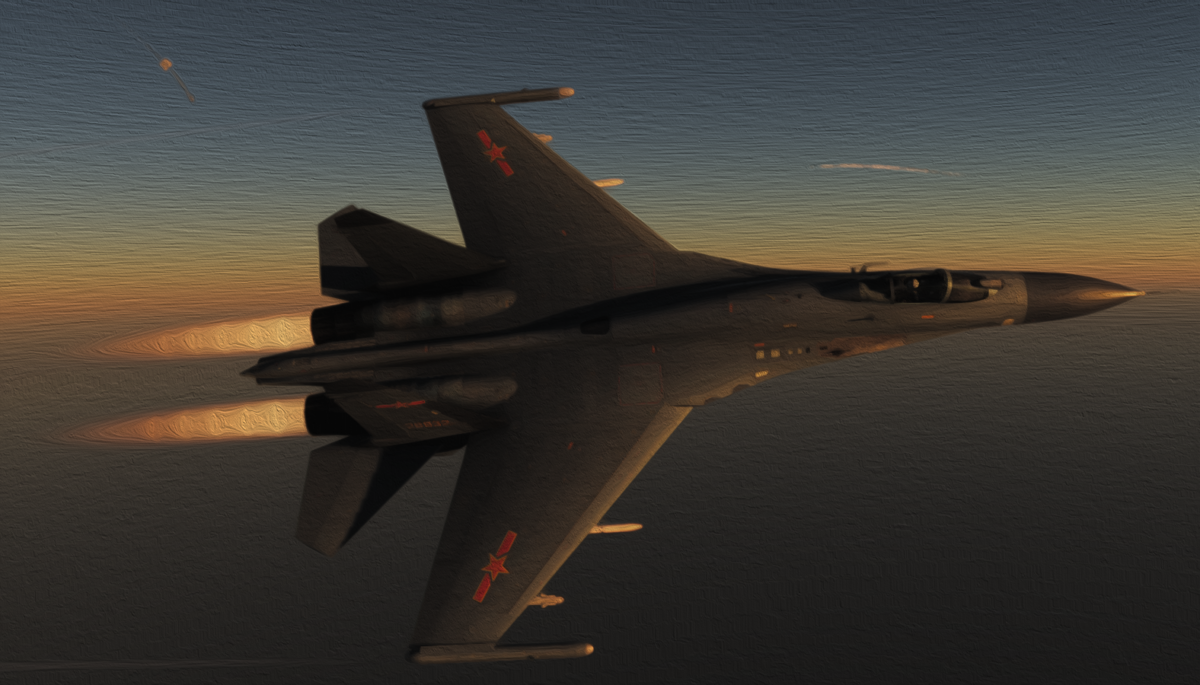
It explodes ahead. I see debris. Scattered pieces falling.
Hell. I’ve killed someone.
I KILLED SOMEONE!
I roll sharply, belly up, pointing the Flanker’s nose down towards the sea to regain energy. I need speed. I was much too slow during the missile launch, and now I’m a sitting duck. I see the waves, the breaks in the water as I pull back against the stick to recover. My body grows heavy, my stomach pressing into the seat, my vision starving for color as the blood pulls from my eyes.
Hold it, Ping! Hold it!
Moments pass. I see nothing but black until finally, I come to. My brain is still working. I’m still alive. There are aircraft all around me, twisting, twirling, looping, and diving.
In bursts, I see more explosions. I see missiles, close range heat-seekers, blasting away towards their foes—and then there is calm. But I’m mixed up now. I can’t tell who is who. I no longer hear my friends, and now it hits me—are they all dead?
“Lion group?” I call. I know I’m frantic.
Who wouldn’t be?
“Star to Lion!” I say again, jinking the jet back and forth, making sure I at least try to avoid any tracking. “Somebody come in!”
Nothing.
NOTHING.
I level out, wondering what is next.
Five minutes pass this way. Then ten. Then fifteen as I head south back towards Jiangong. I hear nothing, I see nothing.
It’s just me. Am I the only one left?
What about Hu? Or Te? My friends.
Why is it so quiet? What happened?
I never saw a single American. Not a single one.
Time slips from me. I must be in shock. I’ve peed myself, tears streaming from my eyes. I flip the visor and wipe them away, angry at my reaction.
Am I a coward? Did I just run?
Radio is back. I’m over the horizon now. I hear broadcasts from the Jiangong, “Command to all units. Command to all units. Report! Report!” there is a pause, then again, “Command to all units. Command to all units. Report! Anyone from Star Group!”
I clear my throat, raising my shoulders, forcing the waviness from my voice before saying, “Star Five to Command. Requesting inbound azimuth. Return approach from mission. Over.”
“Command to Star Five,” the voice sounds relieved, “state your current situation. We need battle assessment.”
I cannot lie, “Egressing battle area, missiles deployed. Scored one confirmed hit. I must be separated from the group. It is only me.”
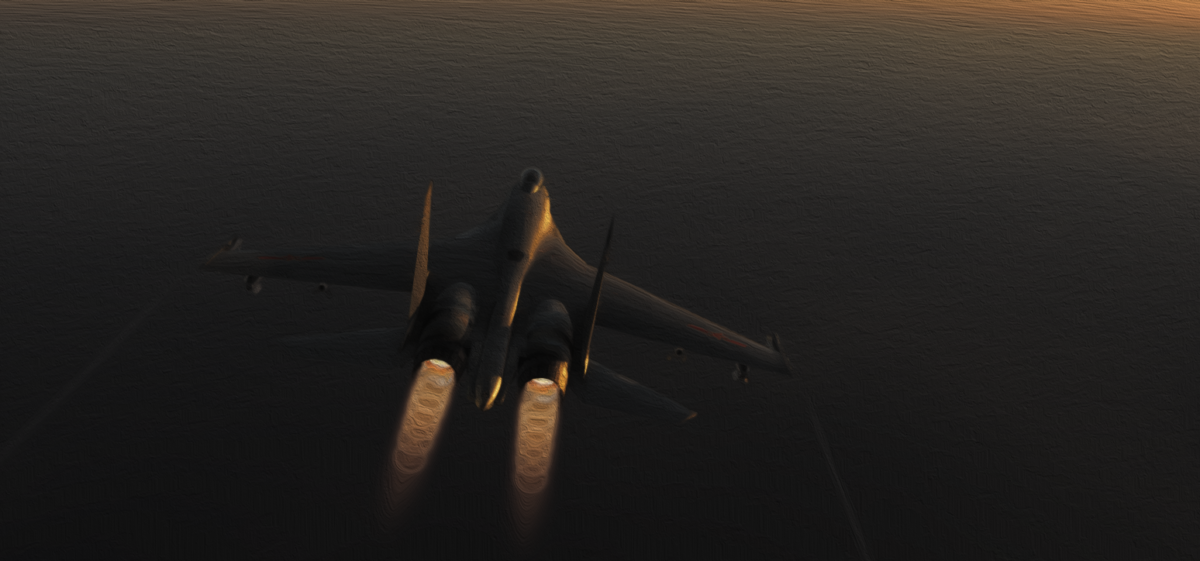
“No.” the voice says, sternly. “It is just you. You have done well. You are a hero of China. Be glad for this.”
My lungs barely work. I hold back the sobs again.
“Thank you, sir.” I say.
“Star Five – Turn to heading 1-2-6. Task force has activated sea beacons.” Those are for emergencies. We have no more satellites. Now I need to write this down, “Follow locators 24-E, 66-V, 12-C, 44-D. Over.”
“Star Five, copy.”
“Radio silence until the fourth beacon. Fight well.”
Fight well?
FIGHT WELL?!?!
Wait. I see something, a faint dot on the horizon, a small shadow in the orange glow of the new day. I straighten up and focus, tightening my grip on the joystick.
Ultimate fear? Close combat.
I have two PL-9s, one on each wingtip.
Heatseekers I hope to never use.
Right rudder. More right rudder. I want to ease the nose towards it. No sudden maneuvers, Ping. Keep calm, and breathe. Remember the training. Remember what I practised and said all the days we fantasized about war.
Think about that. We wanted this.
We wanted to be heroes of China, speaking of what we would do, how we would gain the edge in the cusp of combat. I dreamt of sneaking through the blind side of an F-15 radar, no radar, using my infrared tracker to close distance.
“Two PL-9s.” I said in our class. “Hit him before he even knows I’m there.”
“They say that F-15s have zero aerial combat losses.”
“Well then, maybe this would be the first.”
I remember the Commander’s face, his smile of acceptance, his exaltation of the strategy that became our default should we find ourselves alone and blind—like I am now.
So I must practice what I preach.
Our Russian friends were clever with this design. Whereas the Americans bring slews of technology and computing for their stealth, we bring uncanny simplicity to battle. Aircraft produce heat, all emitted in infrared radiation. Even 300-million-dollar American superjets, and all the computers in the world can’t stop this.
They build superplanes. We prey on their heat.
It’s a strategy of thermodynamics, a guaranteed fact of nature, so why not use it? I switch on the IRST, an electro-optical sensor design to be completely passive. It hones on heat signatures, its search reticle superimposed in the HUD. No radar here. I don’t want American AMRAAMs finding me.
So what am I to do?
Keep flying. For China.
To fight well. And, I guess, die well.
But I don’t want to die. . .
Who is this in front of me?
“Star Five, this is Reaper Two.” I hear, the Russian voice creeping through the radio like smoke. “Star Five, this is Reaper Two. Is that you off my 9-o-clock? 20 kilometers?”
I answer, “Confirm. It’s me, Star Five, sir.”
“You made it.”
“Yes, I did.”
The sun is up, the sky quickly turning blue. It’s beautiful. It’s just me.
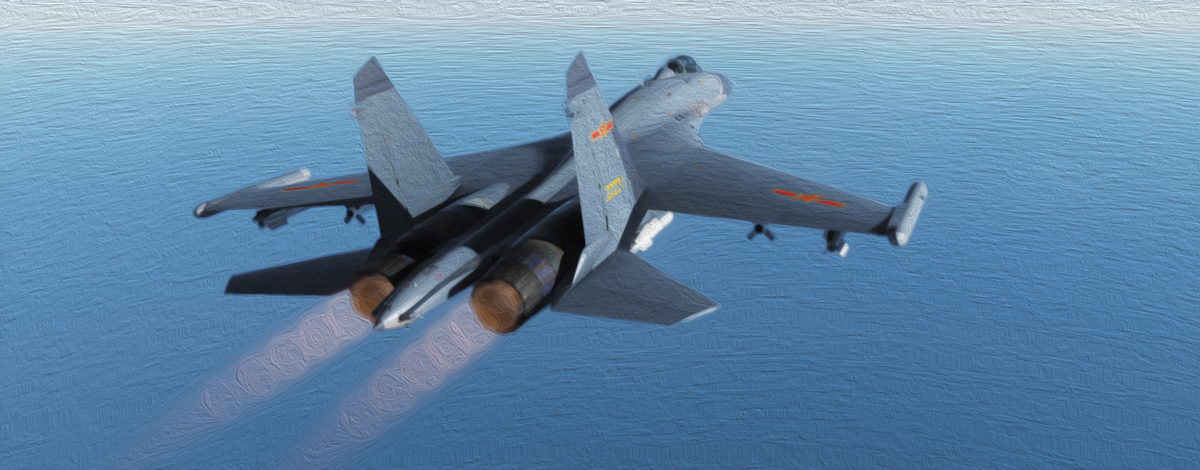
“Good.” the Russian said, cold as ever. “Rendezvous fourth beacon. We will join Reaper Three and Five there.”
“Confirmed, sir.”
Tense, long seconds pass.
“What is your fuel?” he asks.
I check, knowing that I’ve completely forgotten to pay attention to it. Oh, no. I’m low.
My voice cracks, “1050 kilos.”
“Keep distance. 10 kilometers. Conserve your fuel.” he says to me. “I want one of you to make it back alive. We will need good pilots, now more than ever.”
This is a work of fiction. All characters, organizations, and events portrayed in this novel are creations stemming from the author’s imagination. Any events and locations are used fictitiously.
Copyright © 2021 D. R. Super
—
Artwork developed and flown in DCS World, and stylized by me
Aircraft Images come from the wonderful community at shipbucket.com
Tac Maps are created by me in CMANO – Edited in Photoshop © Matrix Games

Facebook Comments